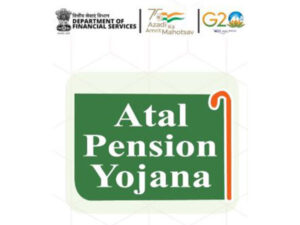South Africa committed to strengthening bilateral trade and investment with India: Minister
Johannesburg, Aug 19 (PTI) South Africa is committed to strengthening bilateral trade and investment with India, the country’s Trade, Industry and Competition Minister Parks Tau told a gathering of South African captains of industry and heads of Indian companies.
Tau was on Sunday the chief guest at the launch of the India-SA Chamber of Commerce (ISACC), an idea sparked during meetings in Cape Town, Durban and Johannesburg with the High Commissioner Designate for South Africa to India, Prof Anil Sooklal.
He will assume office at the beginning of September as the first Indian-origin South African to head up a mission in India.
“In 2023, India ranked number eight as South Africa’s export destination and number four as a source of imports. Over the past five years, our bilateral trade increased from USD 8 billion to USD 13 billion,” Tau said.
The minister said the bulk of South Africa’s exports to India were commodities, of which coal made up 62 per cent.
“We have not yet reached the target of USD 18 billion. We will intensify our efforts to facilitate trade and investment between the two countries,” Tau said.
“This will require an increase in private sector engagements to devise ways of improving trade as well as improve government interaction to deliberate and resolve barriers impacting the expansion of trade, amongst other issues,” he said, calling the launch of ISACC “timely”.
Tau said trade between India and South Africa should be structured to enable more value-added products and services.
“We anticipate that ISACC will play a pivotal role in ensuring that South African exporters can engage Indian buyers when they undertake selling missions to India.
“India has emerged as an essential source of foreign direct investment in South Africa and continues to actively contribute to our investment drive. We appreciate the presence of Indian companies in our country and encourage more Indian companies to further expand their manufacturing footprint in South Africa,” Tau said.
The minister said he believed that both countries could draw from each other’s experiences and explore industrial cooperation in sectors with potential, such as renewable energy, automotive component manufacturing and healthcare, particularly pharmaceutical and medical devices.
“We view (ISACC) as a vehicle that will promote trade and investment ties, and assist in fighting the challenges that we as governments face. Working with you can make a greater impact on our economic positions,” he said.
ISACC representative Atul Padalkar explained the purpose of the new organisation.
“There are about 130 Indian companies in South Africa. However, there are only about 20 South African companies present in the Indian market,” he said.
Padalkar said there were two main questions to be dealt with, the first being how South Africa could increase its exports to India and how it could address the negative trade balance with New Delhi.
“Secondly, how can we as Indian companies in South Africa, contribute as partners to address South Africa’s challenges of poverty, inequality and unemployment?”
“We recognised that there was a need for a structure – something that could handle three of the critical issues which were pointed out in these engagements.
“The first one was how can business help in communicating these issues as a collective to the government and bring to their attention what business and government partnership can achieve,” Padalkar said.
He said the second was finding ways to maximise the many opportunities for trade and investment and the third was to capacitate small businesses which were the backbone of both the Indian and South African economies.
“Most of the bilateral trade and investment is largely driven by big companies – SMMEs are significantly behind in comparison, so we need to bring them on into this equation,” Padalkar said as he pointed out that many of the representatives in the room were from SMMEs.






